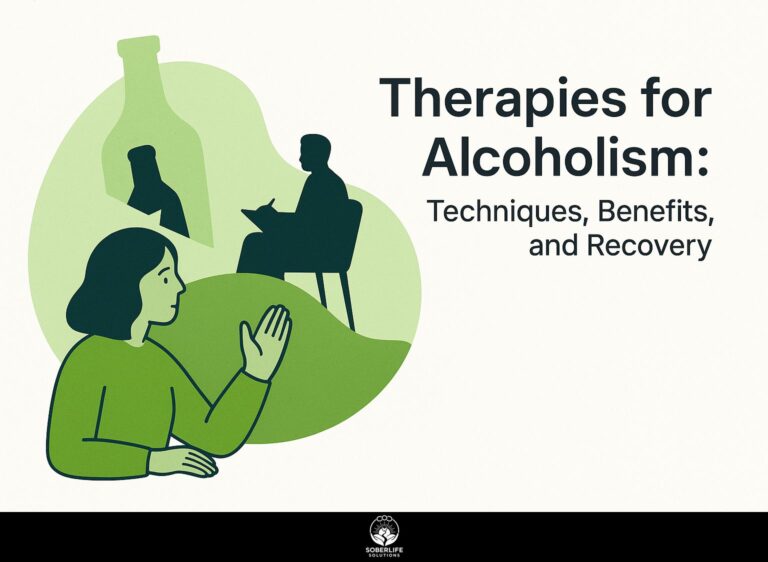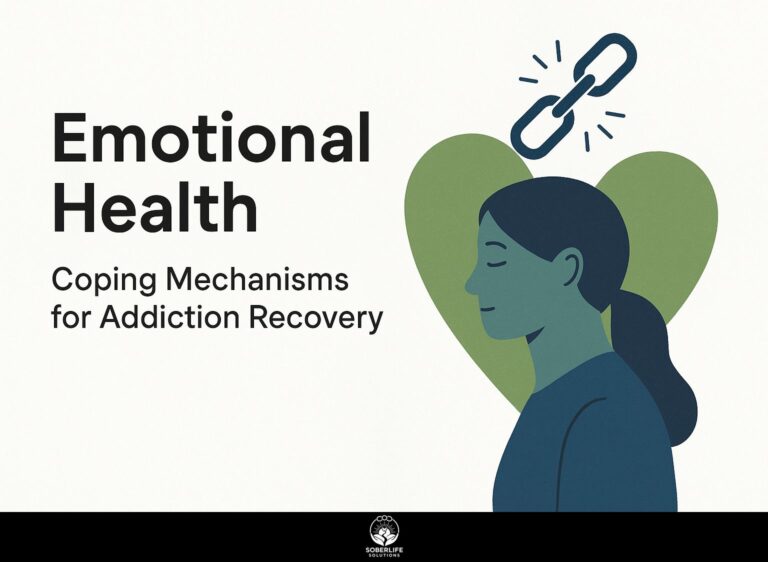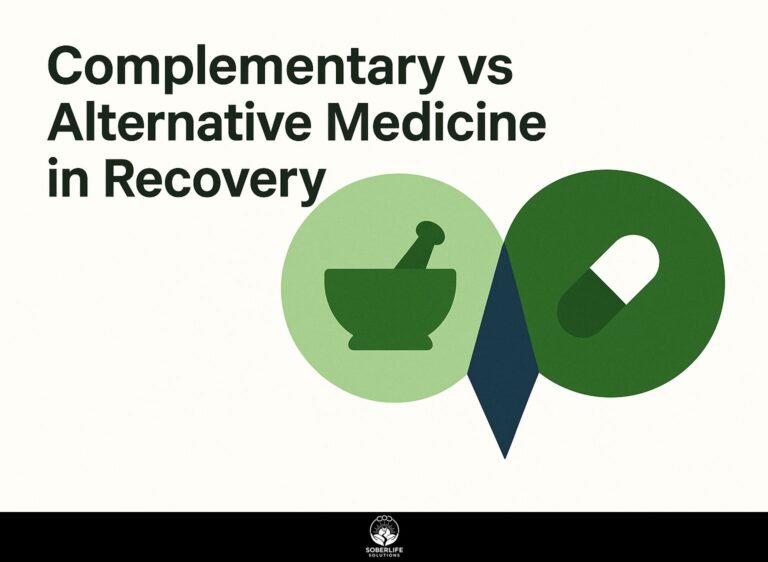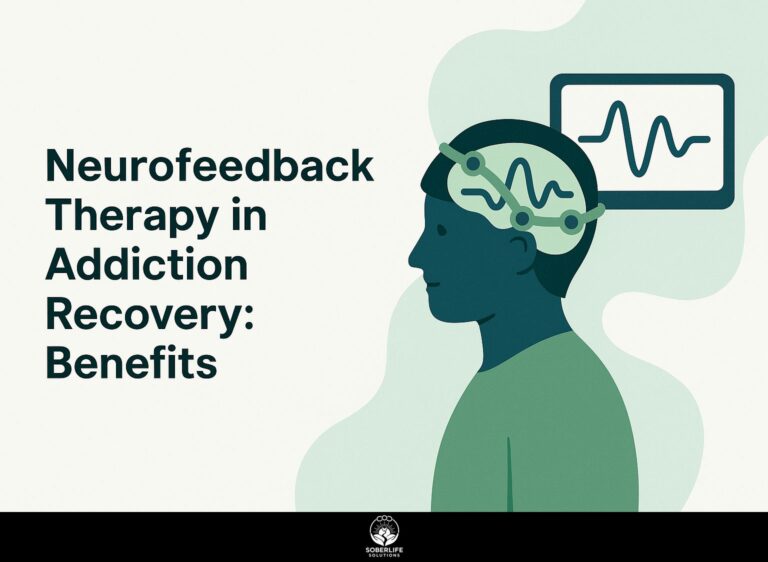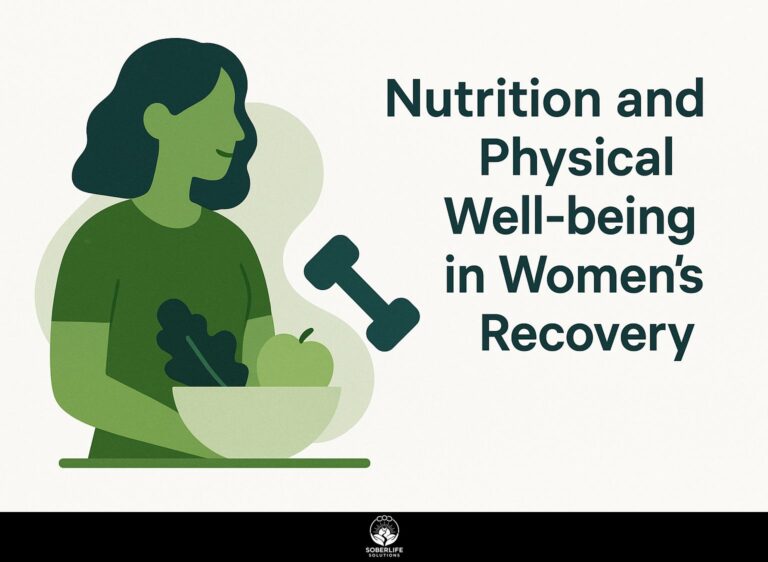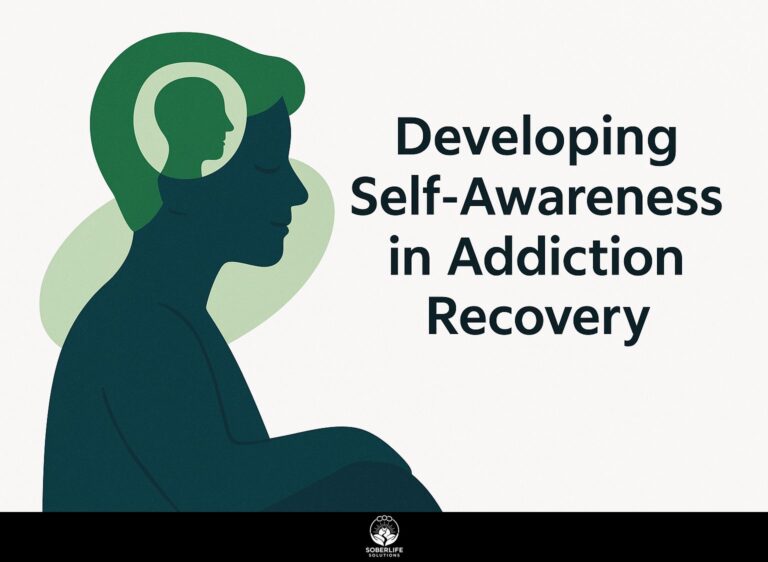Nutrition Therapy: Benefits and Integration in Alcoholism Recovery
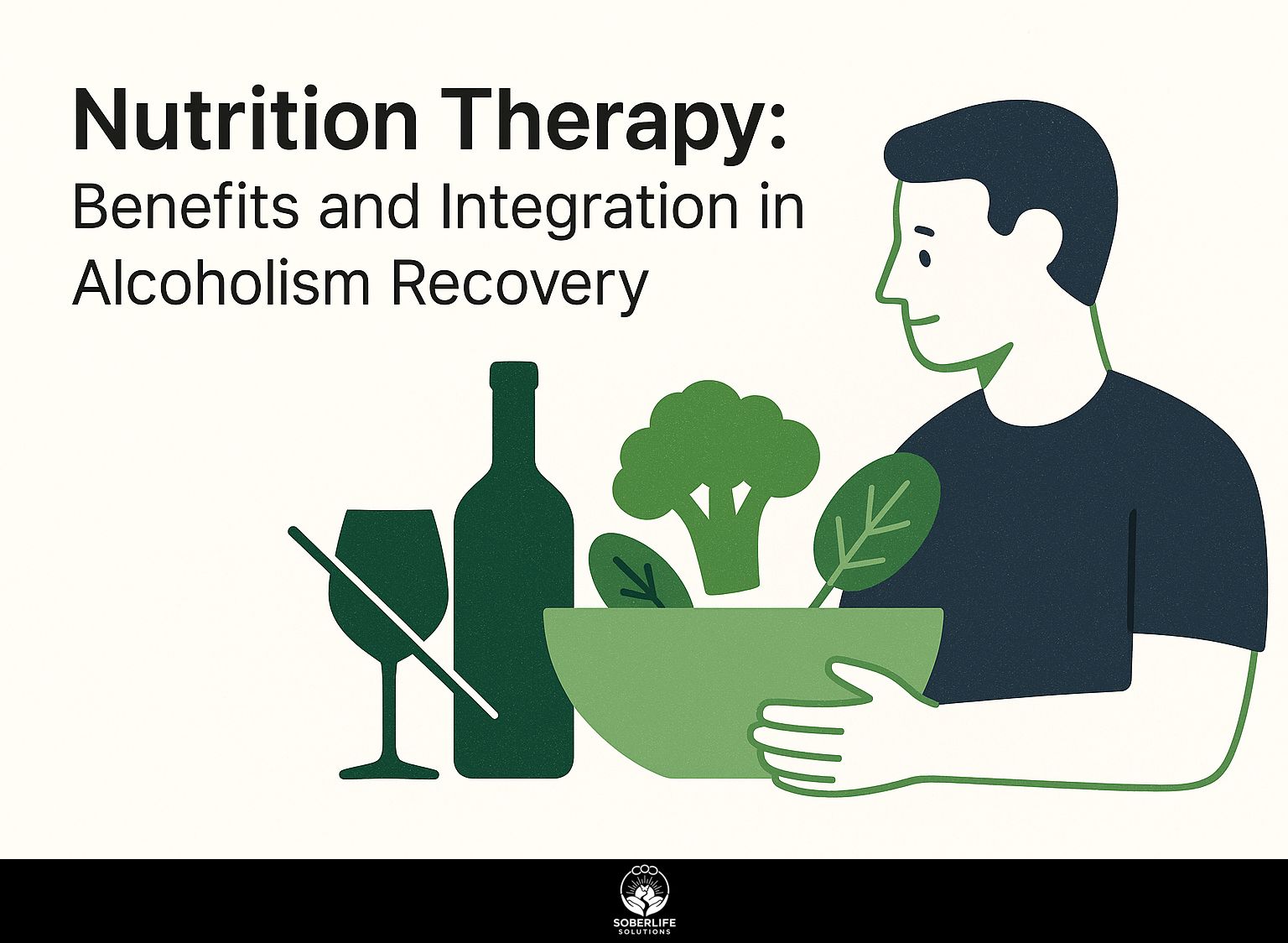
Nutrition therapy is important in dealing with alcohol addiction, as it helps fix key nutrient shortages frequently linked to alcoholism. At Tree House Recovery in North Carolina, including nutritional therapy in alcohol rehab programs greatly improves recovery results. This article looks at how improving nutrition can help with recovery from addiction, focusing on how personalized plans can help people stay sober for the long term. Learn how good nutrition can lead to a healthier life without alcohol.
Key Takeaways:
Understanding Alcoholism
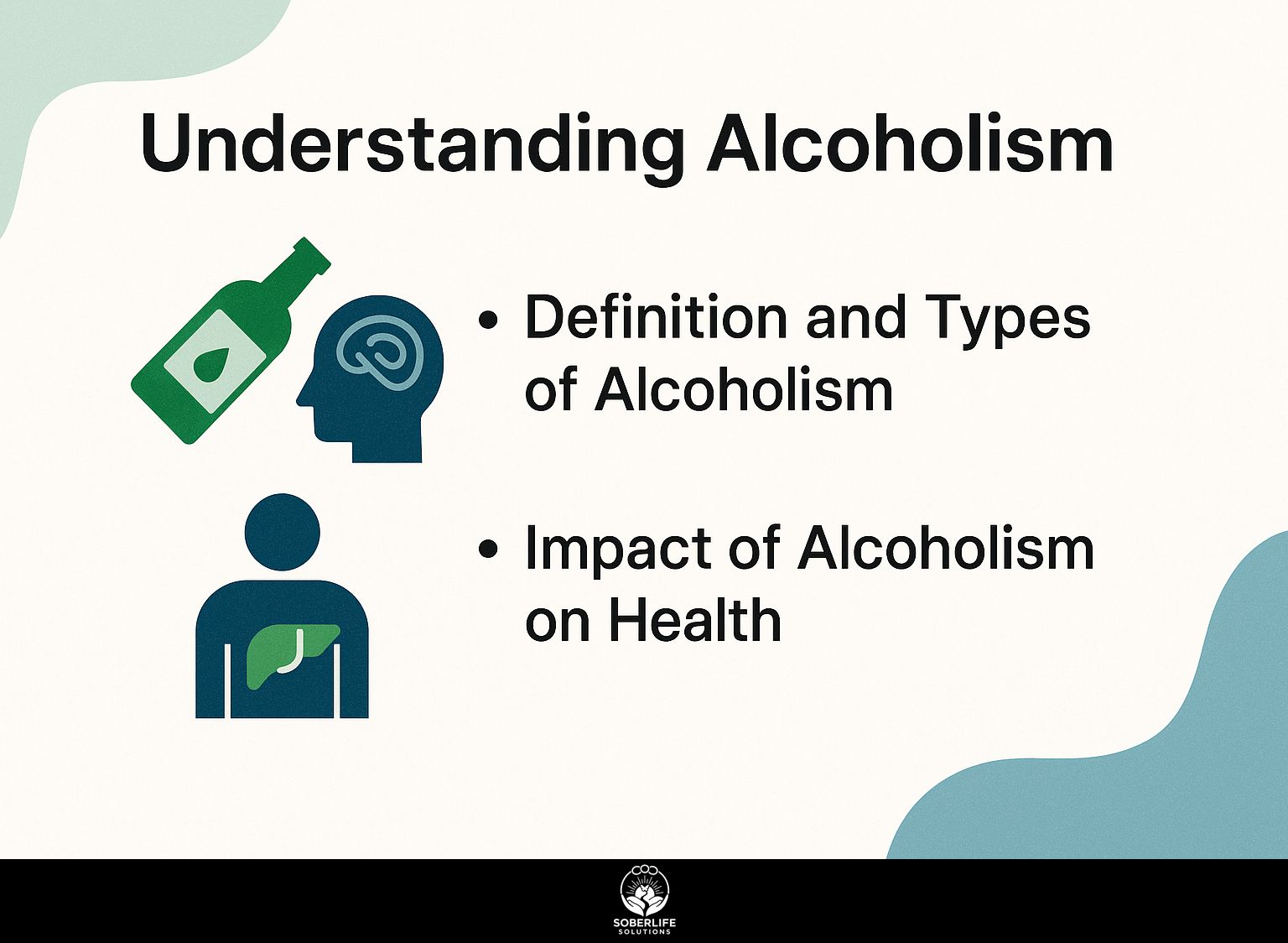
Alcoholism is a long-term illness that affects millions of people, showing up in different ways and harming both mental and physical health. For those dealing with this condition, exploring effective coping mechanisms and recovery strategies can be essential to the healing process.
Definition and Types of Alcoholism
Alcoholism includes different forms like binge drinking and long-term alcoholism, each needing specific methods in recovery programs.
Alcohol use disorder (AUD) affects millions, with 14.1 million adults reporting it in 2019. Binge drinking, defined as consuming five or more drinks in a single occasion, can lead to acute health issues, while chronic alcoholism usually manifests as a compulsive need for alcohol, as noted by the Mayo Clinic in their insights on symptoms and causes of alcohol use disorder.
Recovery methods vary: cognitive behavioral therapy (CBT) is effective for AUD, while motivational interviewing can help binge drinkers recognize their patterns. Support groups like Alcoholics Anonymous offer extra community support, important for staying sober over time.
Impact of Alcoholism on Health
Alcoholism can seriously affect health, leading to liver damage, mental health problems, and a higher chance of death.
Liver cirrhosis is a serious condition; around 10% of people who consume alcohol excessively develop this severe disease, which can lead to liver failure.
Alcoholism significantly affects mental health, with studies indicating that approximately 70% of individuals with Alcohol Use Disorder (AUD) also suffer from anxiety or depression. This dual diagnosis complicates treatment, often requiring integrated approaches that address both substance use and mental health. According to the Centers for Disease Control and Prevention (CDC), understanding the comprehensive impact of alcohol on health, including mental health, is crucial for effective recovery.
Getting help from programs like Alcoholics Anonymous or therapy for both mental health and addiction can help you recover. If interested, exploring teletherapy for AUD could offer additional support and flexibility in accessing treatment.
Role of Nutrition in Recovery
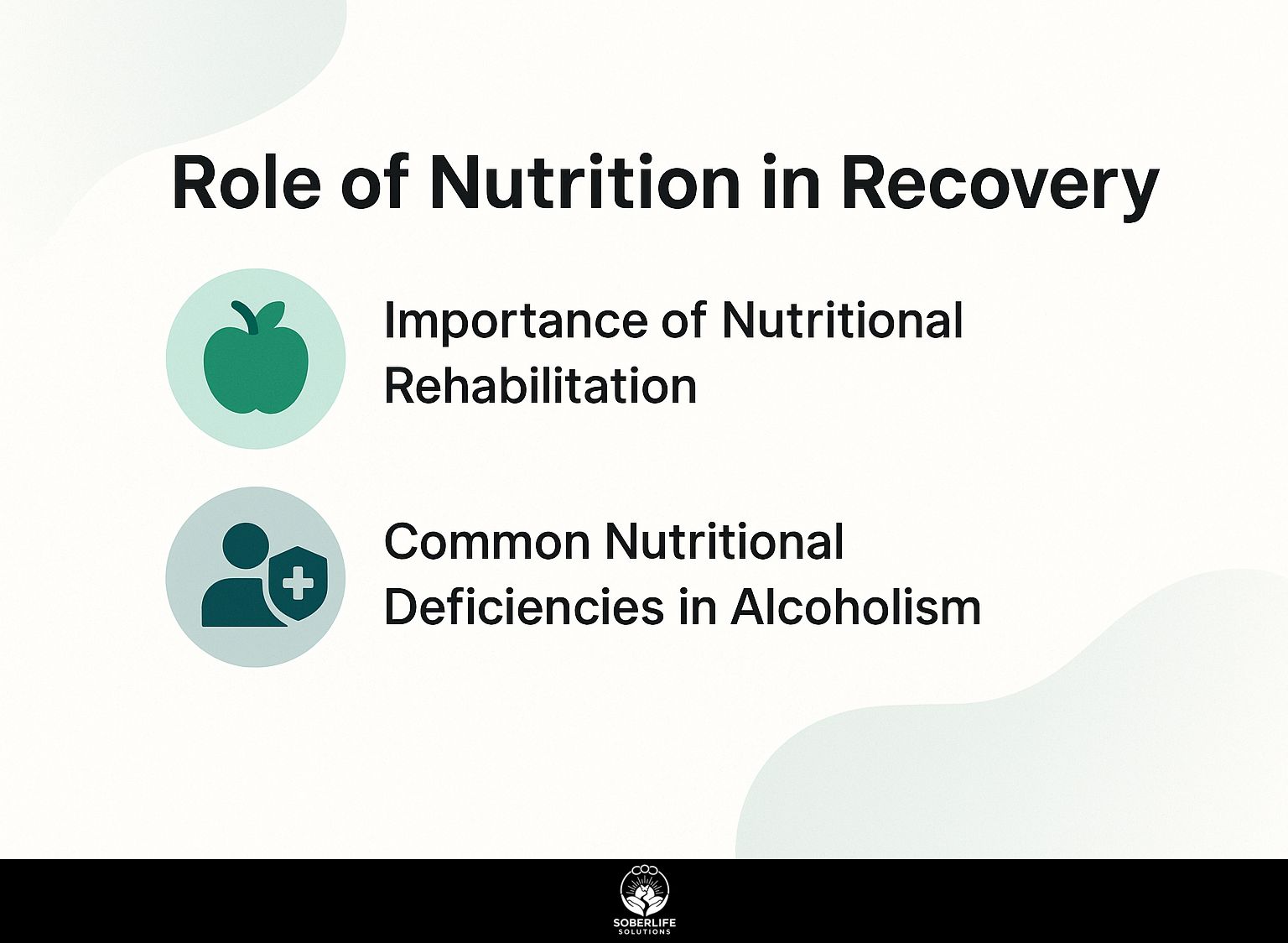
Good nutrition is important for helping with recovery from alcoholism, correcting nutrient shortages, and improving general health. For those seeking detailed guidance on integrating dietary practices, discover our complete strategy for nutrition in addiction recovery to enhance your wellness journey.
Importance of Nutritional Rehabilitation
Nutritional rehabilitation can significantly improve recovery outcomes, leading to better health and a reduced risk of relapse in individuals with alcohol addiction.
By restoring biochemical balance, nutritional rehabilitation supports essential bodily functions. It improves the immune system, which is often weakened in people with alcohol use disorder.
For instance, programs like Tree House Recovery use customized nutrition plans full of omega-3 fatty acids, antioxidants, and vitamins to fight against deficiencies. Clients are encouraged to include foods such as:
- leafy greens
- fatty fish
- nuts
This complete method highlights the importance of drinking enough water and eating regular meals, promoting a healthier way of living that is important for lasting recovery.
Common Nutritional Deficiencies in Alcoholism
Individuals with alcoholism often experience critical nutrient deficiencies, particularly in thiamine, B vitamins, and protein, which can worsen health outcomes.
Thiamine deficiency is prevalent, with studies showing that up to 80% of alcoholics may exhibit signs, leading to neurological issues like Wernicke-Korsakoff syndrome. This condition is detailed comprehensively by MedlinePlus, which explains the syndrome’s impact on brain function.
Vitamin B6 and B12 deficiencies can impede red blood cell formation and nerve function, contributing to anemia and neuropathy. Not getting enough protein can lead to loss of muscle and a weaker immune system, which can make healing harder.
Fixing these shortages with supplements or a good diet is important. For instance, eating fortified cereals or lean meats can greatly benefit overall health.
Benefits of Nutrition Therapy
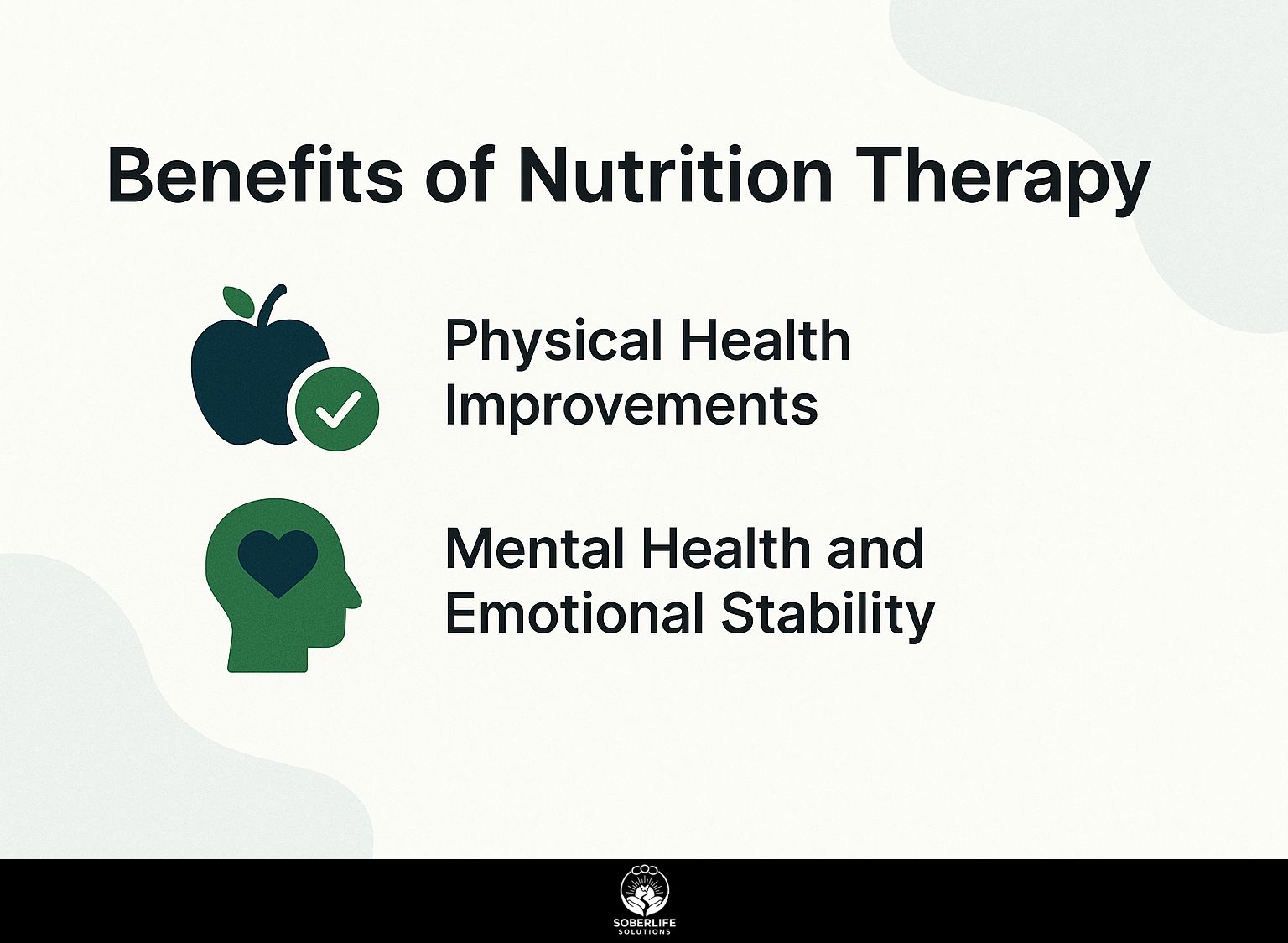
Nutrition therapy provides many benefits, such as better physical health, a more positive mood, and clearer thinking during recovery.
Physical Health Improvements
Nutrition therapy can greatly improve physical health by helping the body absorb nutrients better, boosting energy levels, and strengthening the immune system.
For example, a study with athletes showed that custom meal plans increased their energy by 25% over eight weeks. By incorporating whole foods and reducing processed sugars, participants noticed improvements in endurance and recovery times.
Similarly, a study on overweight individuals demonstrated that targeted interventions focusing on high-fiber diets resulted in an average weight loss of 10 pounds in three months.
Using tools like MyFitnessPal can help people monitor their food intake, making it easier to track their progress and improve their eating habits successfully.
Mental Health and Emotional Stability
Combining nutrition therapy greatly improves mental health, lessening depression and anxiety symptoms often associated with alcoholism.
Research supports this connection; for instance, a study indicated that 60% of participants in nutrition programs experienced improved mood and fewer cravings.
One practical method is to add omega-3 fatty acids to your meals. These nutrients, present in fatty fish such as salmon or in flaxseeds, are associated with lowering symptoms of depression. Maintaining balanced blood sugar through regular meals can help stabilize mood swings.
Think about talking with a nutritionist to make a custom plan that includes these parts, which can help improve your mood and brain health.
Integrating Nutrition Therapy into Recovery Programs
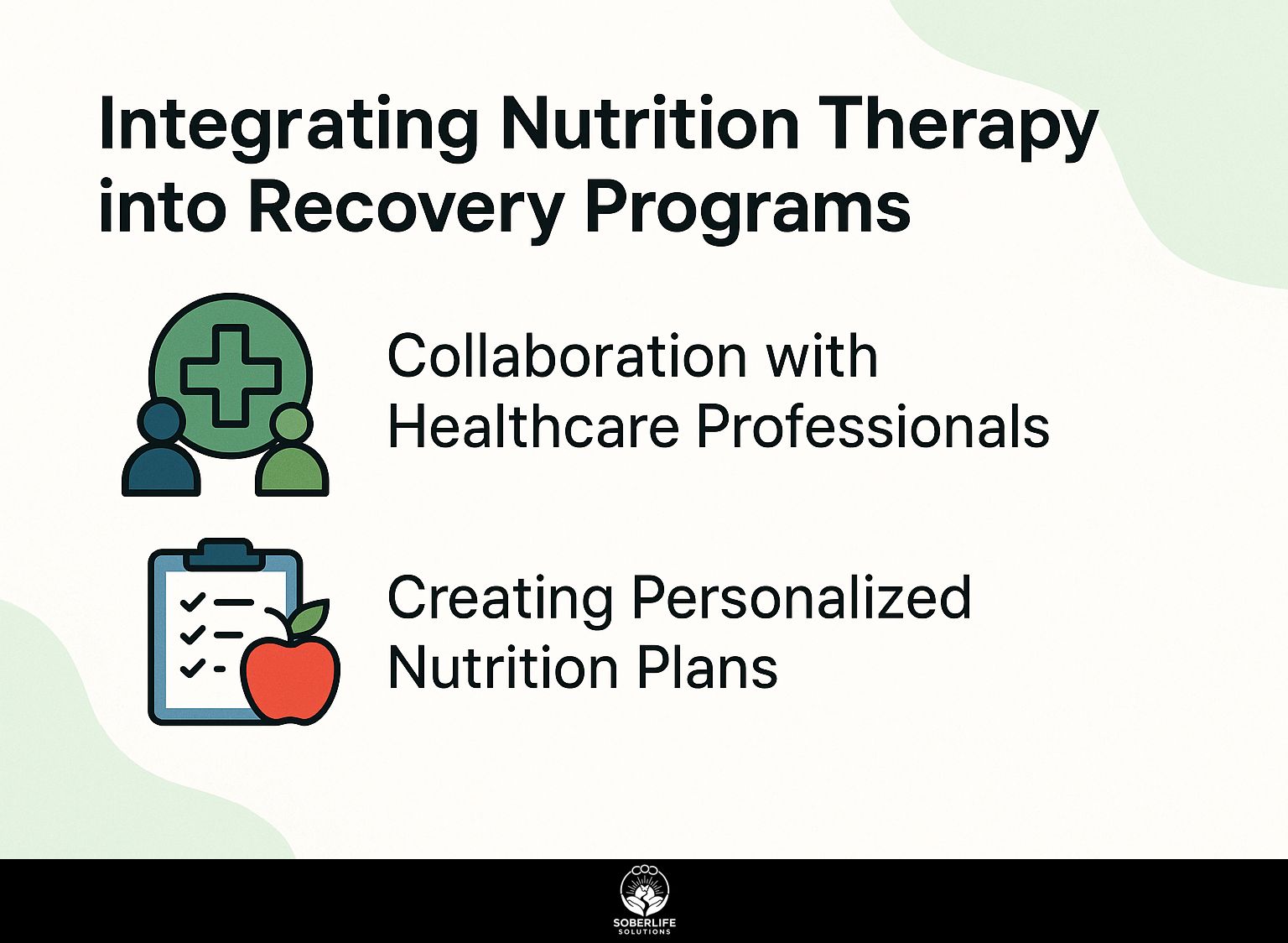
For the best results, nutrition therapy should be combined with other treatments in rehabilitation programs (our guide to holistic therapy benefits in rehab explains more about these integrations).
Collaboration with Healthcare Professionals
Collaboration among healthcare professionals, including dietitians and counselors, is essential for establishing effective nutrition therapy protocols in recovery settings.
This method brings together different fields to improve care and help patients stick to their treatment plans.
For instance, a dietitian can assess a patient’s nutritional needs while a therapist addresses emotional barriers to healthy eating.
Regular team meetings and shared digital platforms, like Slack or Trello, facilitate seamless communication, ensuring each professional is informed about progress and challenges.
This proactive approach improves patient results and builds a stronger support network, helping patients stay dedicated to their recovery process.
Creating Personalized Nutrition Plans
Creating nutrition plans based on personal tastes and requirements greatly improves how well people stick to them and how effective they are during recovery.
- Begin by assessing underlying health conditions such as diabetes or hypertension, as these will inform your dietary choices.
- Next, find out what foods you like so the plan is enjoyable.
- Use tools like MyFitnessPal to track daily intake and monitor progress.
- Aim for a balanced diet, incorporating plenty of fruits, vegetables, lean proteins, and whole grains.
- Regularly look over and update the plan based on feedback and results to make sure it keeps meeting changing needs.
Case Studies and Success Stories
Real-life case studies highlight the effectiveness of nutrition therapy in facilitating recovery from alcohol addiction, showcasing varied approaches and outcomes.
For example, Tree House Recovery combines custom meal planning with counseling sessions, leading to a 30% drop in relapse rates for participants.
Similarly, the Caron Treatment Centers implemented a whole-foods dietary regimen, improving participants’ emotional well-being scores by 25% within three months.
Another effective model is the Promises Treatment Centers, which combines nutrition education with recovery coaching, leading to a 40% increase in clients maintaining sobriety for over a year.
These examples show how specific nutritional strategies can greatly help in recovering from addiction. Additionally, reducing stress and anxiety is a crucial aspect of treatment, as highlighted in our analysis of reducing stress and anxiety in alcoholism treatment.
Frequently Asked Questions
What is Nutrition Therapy and how does it benefit alcoholism recovery?
Nutrition Therapy is a form of treatment that focuses on using food and supplements to improve overall health and well-being. It has been shown to be effective in supporting alcoholism recovery by providing essential nutrients, promoting physical and mental well-being, and reducing cravings for alcohol.
How does Nutrition Therapy integrate into alcoholism recovery programs?
Nutrition Therapy can be part of alcoholism recovery programs by working with healthcare professionals and counselors to create a personal plan that meets the specific needs of the individual in recovery. This plan will often include education on proper nutrition, meal planning, and guidance on healthy food choices.
What are the specific benefits of Nutrition Therapy for individuals in alcoholism recovery?
Nutrition Therapy has many benefits for individuals in alcoholism recovery, including improved physical and mental health, increased energy levels, reduced cravings for alcohol, and improved overall well-being. It also gives people a feeling of control and confidence as they recover.
Can Nutrition Therapy help with the physical effects of alcoholism?
Yes, Nutrition Therapy can help with the physical effects of alcoholism by providing the body with essential nutrients that may have been depleted due to excessive alcohol consumption. It can also help with managing symptoms such as liver damage, gastrointestinal issues, and vitamin deficiencies.
Is Nutrition Therapy a replacement for traditional methods of treating alcoholism?
No, Nutrition Therapy is not a replacement for traditional methods of treating alcoholism, such as therapy and support groups. It is meant to work with these methods to support recovery and improve health and well-being.
How can I include Nutrition Therapy in my own alcoholism recovery process?
You can include Nutrition Therapy in your alcoholism recovery by talking to a healthcare professional or nutritionist to create a plan that fits your needs. Learn about good nutrition and healthy food choices, and make small adjustments to your diet to better your health and well-being.

